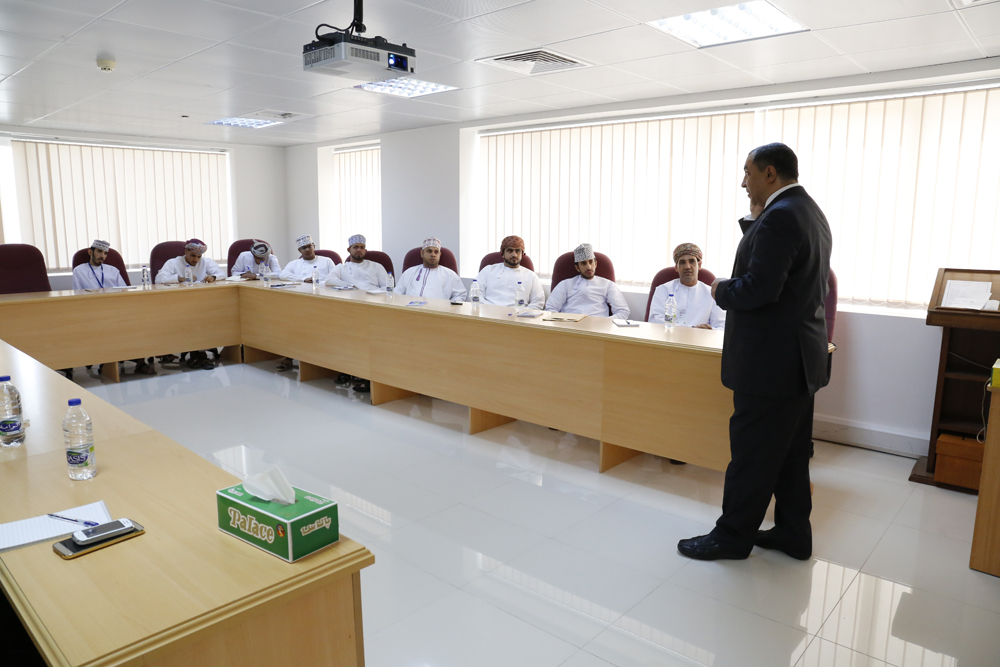Ejadah Provides a numerous number of programs and workshops for buidling Capabilities that’ll help
the trainee experience what it’s like in the workflow real world, each of these quality sets has its own number
of Programs/workshops.
Governance, risks, performance measurement:
- Governance and risk management in the public sector
- Best practices in performance measurement

Integrated program in internal audit:
(A program targeting internal auditors and internal audit managers in government units)
1. planning the oversight mission.
(Preparing the inspection plan and mission work program based on risks, controls, and performance indicators)
2. Implementing the oversight mission.
(Executing control tasks efficiently and effectively, working papers, collecting and analyzing data, interviews, and writing notes)
3. writing technical oversight reports.
(Technical writing of reports (situation, indicators, cause, effect, recommendation).)
4. Follow-up of results, report outputs and supervisory impact.
(Follow up on the results of reports and supervisory impact)
5. interviews, communication techniques, presenting presentations, and the results of control tasks.
(Techniques of conducting interviews and communication, and ways of presenting and presenting the results and communicating them in order to achieve the objective of the task)
Advanced program in internal audit:
(A program targeting internal audit managers in government units and internal auditors)
1. ensuring the quality of supervisory work.
Distributing roles and tasks and achieving added value from the implementation and work of oversight tasks
2. Preparing the annual internal audit plan.
Developing the annual audit plan, measuring and analyzing risks, scheduling and organizing the plan and following up
3. Effectiveness of internal audit committees.
The role and effectiveness of audit committees, overall risk management, understanding financial reports, towards added value to internal audit committees
4. An introduction to the use of performance control methodology in internal audit departments.
The concept of performance monitoring in accordance with international standards, performance monitoring techniques, working papers, planning, implementing and following up on performance evaluation results.

Audit and anti-corruption:
- Fundamentals of government internal audit.
- Internal control and internal audit systems.
- Risk management in government units.
- The skills necessary for internal auditors to detect cases of corruption and fraud.
- Best practices to combat corruption and fraud.
- Control using information technology.
- The effectiveness of internal audit committees in public bodies and companies.
- Performance monitoring: Verifying that resources are being used efficiently, economically and effectively.
Integrated program in data management and analysis systems:
1. Techniques for preparing administrative electronic reports.
2. Data Analysis and Management.
3. Advanced data analysis and management.
4. Report presentation techniques.
Quality management systems:
- Introduction to project management
- Project management basics
- Risk Management
- Planning, organizing and scheduling
- Strategic Planning
- Entrepreneurship 101
- Basic concepts in business management
- Improved flexible production
- artificial intelligence
- Work process management
- ISO 9001 Quality Management System
- Monitoring internal quality management systems
- Environmental Management Systems 14100
- Environmental health and safety management systems 18100
Advanced program in leadership and management:
1.The Arabic version of the No. 1 leadership and management program around the world.
Introduction to information technology:
1. Introducing smart programs, solutions and systems
(Understand the general concepts of software architecture, integration and mobile applications)
2. Introducing the latest contemporary technology
(Introducing cloud solutions, bots and virtual environments)
Programming language (Python):
Workshop (1): Introducing programming languages and their differences with Python and installing the work environment.
Workshop (2): The main commands for dealing with variables, lists and dictionaries
Workshop (3): Training in OOP-Oriented Programming.

Artificial intelligence and machine learning programme:
(A program directed at programmers and specialists in the field of information technology to introduce artificial intelligence and data modeling)
1. basic definitions of statistics and probability.
Introduction to basic statistical operations and probability theories
2. training in simple data modeling and forecasting.
Training in using spreadsheets in classification and prediction regression problems
3. Training on the use of probability in machine learning.
Developing simplified programs in generative data modeling and classification techniques
4. training on discriminative classification
A type of direct classification of data with higher accuracy than probability with the development of supporting codes
5. Introduction to Deep Learning.
The latest machine learning techniques, introducing the required classifiers and infrastructure with experimental codes